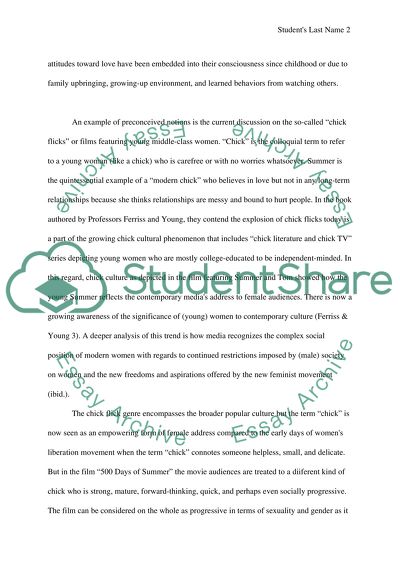Cite this document
(“Film Analysis 500 Days Of Summer Essay Example | Topics and Well Written Essays - 1250 words”, n.d.)
Retrieved from https://studentshare.org/gender-sexual-studies/1689949-film-analysis-500-days-of-summer
Retrieved from https://studentshare.org/gender-sexual-studies/1689949-film-analysis-500-days-of-summer
(Film Analysis 500 Days Of Summer Essay Example | Topics and Well Written Essays - 1250 Words)
https://studentshare.org/gender-sexual-studies/1689949-film-analysis-500-days-of-summer.
https://studentshare.org/gender-sexual-studies/1689949-film-analysis-500-days-of-summer.
“Film Analysis 500 Days Of Summer Essay Example | Topics and Well Written Essays - 1250 Words”, n.d. https://studentshare.org/gender-sexual-studies/1689949-film-analysis-500-days-of-summer.


